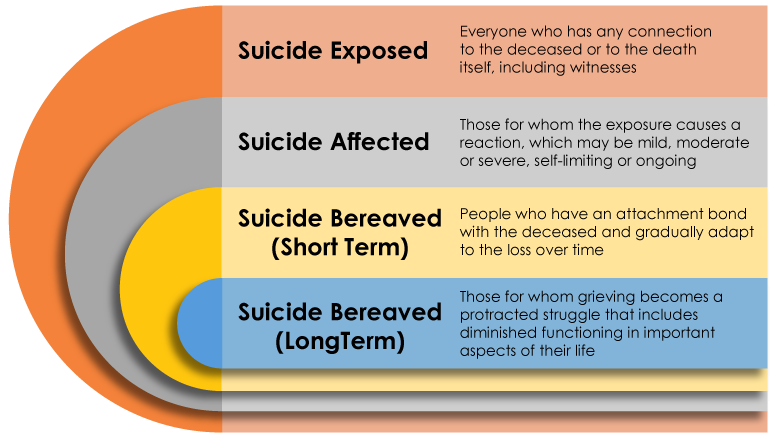What is Postvention?
Here you can discover the what Postvention is, and the importance of it. Postvention has always been an important aspect of LOSS Community Services.
What is Postvention?
Here you can discover the what Postvention is, and the importance of it. Postvention has always been an important aspect of LOSS Community Services.
What is Postvention?
post·ven·tion
noun
Postvention is counseling and other social care given after the experience of a traumatic event, especially to those directly affected by a suicide loss.
According to the Oxford Dictionary, Postvention is counseling and other social care given after the experience of a traumatic event, especially to those directly affected by a suicide loss.
Postvention is an intervention conducted after a suicide, largely taking the form of support for the bereaved, who may be at increased risk of suicide themselves. Postvention is a term that was first coined by Shneidman in 1972, which he used to describe “appropriate and helpful acts that come after a dire event.” In Shneidman’s view, “the largest public health problem is neither the prevention of suicide nor the management of suicide attempts, but the alleviation of the effects of stress in the survivors whose lives are forever altered.”[1] Postvention intends to alleviate the effects of this stress and help survivors cope with the loss they have experienced.
Suicide Postvention is Suicide Prevention
This short, 5-minute video will help you better understand why suicide postvention is also suicide prevention.
People easily understand the need to provide comfort and support to family and friends after the suicide of a loved one, but they may not realize how many others are affected by that death, or for how long afterward. In this talk, Ken Norton, LICSW, Executive Director of the National Alliance for the Mentally Ill (NAMI) in New Hampshire, discusses the role of “postvention” not only as a response to what has happened, but also as protection against and preparation for what could happen.
For additional resources, visit https://losscs.org/resources.
Who is a Suicide Loss Survivor?
A suicide loss survivor is anyone impacted by a death by suicide. This may include family, friends, coworkers, peers, neighbors, and anyone else touched by the loss of someone who has died by suicide.

A 2018 study by Cerel and colleagues at the University of Kentucky reveals that for each suicide in the United States, 135 people are exposed to death, resulting in 6.2 million U.S. residents exposed to suicide in a given 12-month period.
“Exposure is important because we simply do not know the scale and magnitude of those affected by suicide, and the prevalence of those in societ who may be in need of both suicide prevention and post-suicide support and service, postvention. Given the identified magnitude of difference, the old speculations must be case aside to allow increases in services and resources for he bereaved to mitigate the long-term effects from suicide. These date confirm suicide postvention as a necessary public health priority.”
History of the LOSS Model
The original LOSS team (Local Outreach to Suicide Survivors) was launched in 1998 in Baton Rouge, LA by Dr. Frank Campbell. Dr. Campbell developed the LOSS team model after learning that it took an average of 4.5 years for survivors of suicide loss to reach out for help. During those years many survivors suffered in silence and developed unhealthy coping skills, which made the access to suicide grief support critical. Since then, Dr. Campbell has traveled across the country training others, resulting in the launch of several LOSS teams. The first LOSS team in Ohio was the Logan/Champaign Team. When activated by the Franklin County Coroner’s office, trained LOSS volunteers arrive on scene to connect with the newly bereaved to provide them with resources and support.
Just as importantly, LOSS will help the newly bereaved find hope. From Denise Meine-Graham, LOSS Founder in Columbus, OH: I remember after my son died by suicide a Mom who had survived her son’s suicide 5 years prior came to see me. I remember looking up at her in amazement because she was able to drive herself to my home. I simply could not imagine doing anything normal – like driving – EVER again. Meeting her provided an instillation of hope I didn’t even realize I needed. At that time no one else could have given that hope to me – just another survivor.

